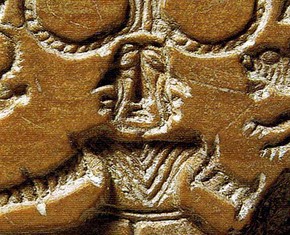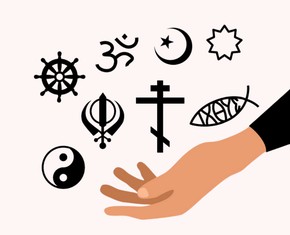The views expressed in our content reflect individual perspectives and do not represent the authoritative views of the Baha'i Faith.
Each spring, my body prepares for the annual period of restraint for Baha’is all over the World: the Baha’i Fast. It’s 19 days, from March 1 through March 19, of abstaining from food and drink, from sunrise to sunset. This period is an opportunity for spiritual cleansing: to examine behaviors, how I “show up” to family, friends, co-workers, and to the world as a human being committed to promoting the oneness of humanity. It is a time for reflection, meditation, for creating intentions, for learning and practicing virtues, like patience. The fast is like spring cleaning my personal living space.
The Baha’i Fast is applicable only for those in good health aged between 15 and 70. It’s longer than Yom Kippur, the annual fasting period of the Jewish Faith, and about the same duration as the Christian Lent or of Ramadan in the Muslim world. Throughout religious history, followers of the Divine Prophets wishing to attain greater spiritual fortitude, participated in the “mortification of the flesh” by voluntarily, periodically restraining from consuming food or drink.
The Baha’i Writings state the annual Fast is:
“…essentially a period of meditation and prayer, of spiritual recuperation, during which the believer must strive to make the necessary readjustments in his inner life, and to refresh and reinvigorate the spiritual forces latent in his soul. Its significance and purpose are, therefore, fundamentally spiritual in character. Fasting is symbolic, and a reminder of abstinence from selfish and carnal desires.” —Shoghi Effendi, quoted in The Kitab-i-Aqdas
Fasting is a discipline that I have followed each year since joining the Baha’i Faith, with exemptions during illness, travel, childbearing and breastfeeding,. For me, this self-imposed practice of not thinking about food and drink for approximately 12 hours for 19 days is an anticipated blessing. Fasting allows me the opportunity to “do without” in a land of plenty.
Currently, our American society is in severe crisis: we are living in times that test our spirits: “the world is wet with tears”, according to the Baha’I Writings, because of its disunity, its extremes of wealth and poverty.
When I read the news I’m inundated with stories about human hatred, violence, injustice, homelessness, inequality and degradation. The Baha’i writings assert the essential nobility of every human being and that humanity is capable of elevating every soul from the misery of materialism and consumerism. Fasting once a year, voluntarily refraining from food and drink because I can and not because I have to, enables me to humble myself, to be tested, to refine and calibrate my faith to renew my daily efforts towards service to humanity. Fasting is an act of worship, of supplication for strength, for inspiration and the will to act in ways that contribute to humanity’s advancement instead of its destruction. The Baha’i Writings also state that: “prayer and fasting produces awareness and awakening in man, and are conducive to his protection and preservation from tests.” —Abdu’l Baha, Compilation on The Importance of Obligatory Prayer and Fasting.
Thus, fasting is an action that can instill gratitude and humility for the circumstances of my life. Voluntarily depriving myself of food and drink each year is a way of reminding me of “there but for the grace of God, go I.”
There are millions of people on this earth who are not sure of their next meal every single day. Fasting reinforces my dependence on the Will of God for my daily needs. As the Baha’i Writings remind me: “I have committed, O my Lord, my spirit and my entire being into the right hand of Thy might and protection, and I lay my head on my pillow through Thy Power and lift it up according to Thy Will and Thy good pleasure.” (Baha’u’llah, Baha’i Prayers). Each year, this period of restraint is a way of deepening my spiritual connection to My Creator: It is a blessing that is conducive to emotional, mental, and spiritual health.
















Comments
Sign in or create an account
Continue with Googleor